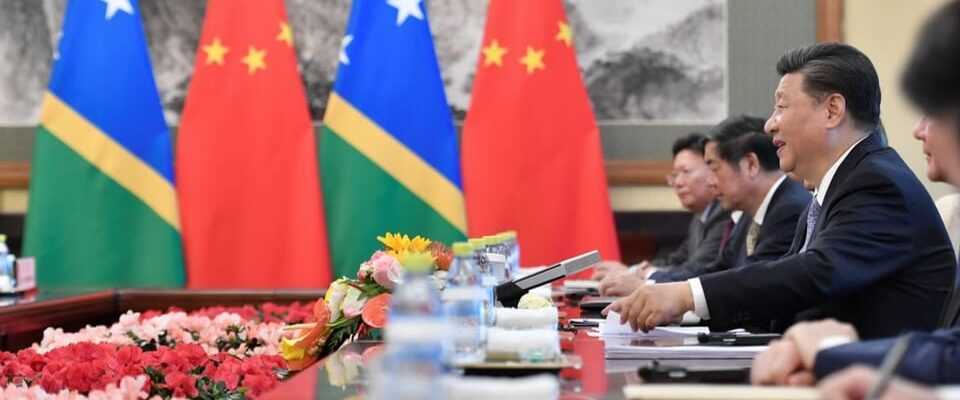contents
An agreement with the Solomon Islands strengthens Beijing’s influence on the outskirts of Australia. Much to the annoyance of the West.
It’s all about this: The Solomon Islands in the South Pacific have sealed a controversial security cooperation agreement with China, despite opposition from their neighbors Australia and New Zealand and the United States. According to Chinese information, the long-term contract includes cooperation in maintaining social order, protecting the security and property of the population. There is also humanitarian support and help in the event of natural disasters.
These are possible consequences: The exact wording of the contract that has now been signed is not known. However, a draft was published a few weeks ago. This stipulated that Beijing could send the military, police and other security forces to the Solomon Islands to ensure social stability. “However, we do not know whether there have been any changes to the agreements that have now been concluded,” says SRF correspondent Martin Aldrovandi in China.
These are Beijing’s intentions: “The agreement is part of China’s efforts to increase influence in the region,” says correspondent Aldrovandi. In 2019, the Solomon Islands broke off diplomatic relations with Taiwan, which had existed since 1983, and immediately established relations with Beijing. Since then, China has been investing “heavy” in the Solomon Islands. The archipelago is also part of China’s “Belt and Road” initiative. For example, Beijing is building a sports stadium in the Solomon Islands that is to be used for next year’s Pacific Games.
Legend:
In October 2019, a few weeks after the Solomon Islands severed diplomatic relations with Taiwan and established relations with the People’s Republic, China’s President Xi Jinping received a Solomon government delegation in Beijing.
Reuters
This is how the West reacts: The USA, Australia and New Zealand had previously protested against the agreement. The US government is sending a high-level delegation to the Solomon Islands this week, led by Indo-Pacific Coordinator Kurt Campbell. Because, according to the US State Department, the broad nature of the agreement between Beijing and the Solomon Islands “leaves the door open for the stationing of military forces from the People’s Republic”. Washington also expressed concern that cooperation could destabilize the Solomon Islands.
The Solomon Islands say: The Prime Minister of Solomon Islands said there was no intention for China to set up a military base on the islands. Rather, it is about cooperation in the internal security of the archipelago. Martin Aldrovandi says: “Nevertheless, it is clear: China wants to increase its influence on the Solomon Islands.” For example, Beijing operates a comparatively large embassy building in the Solomon Islands, while the USA, for example, is still planning to open an embassy there.
